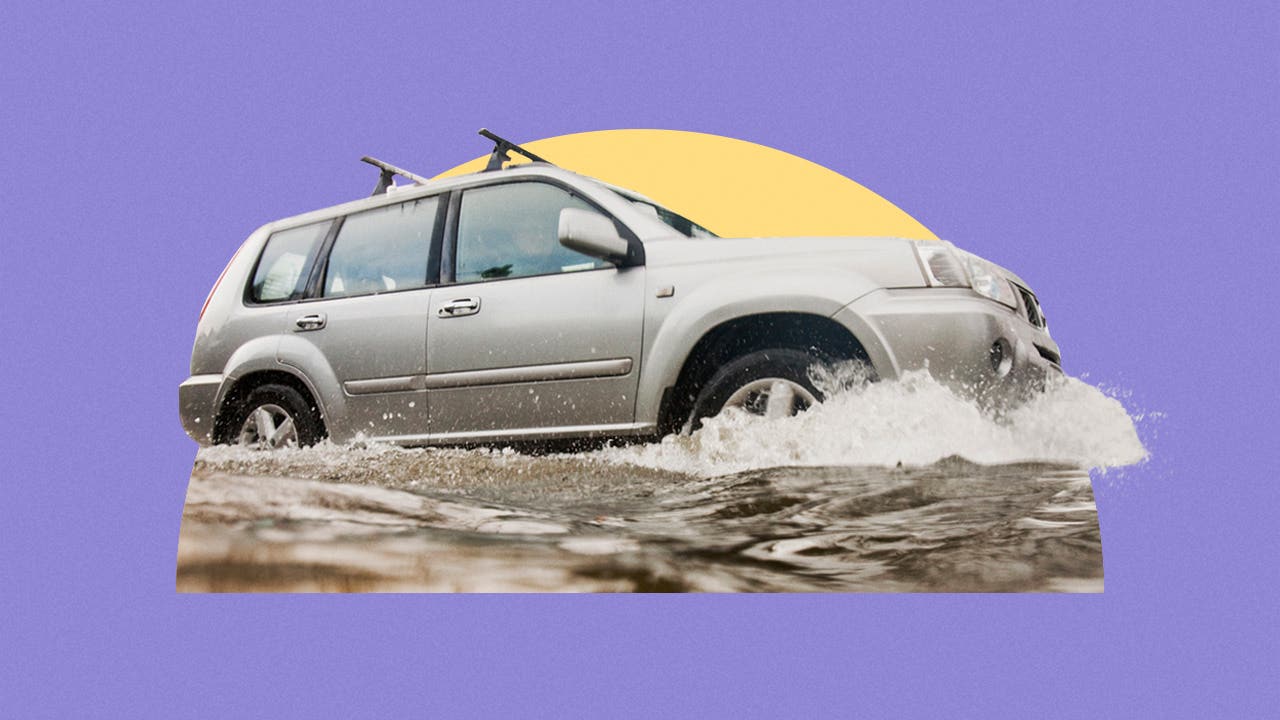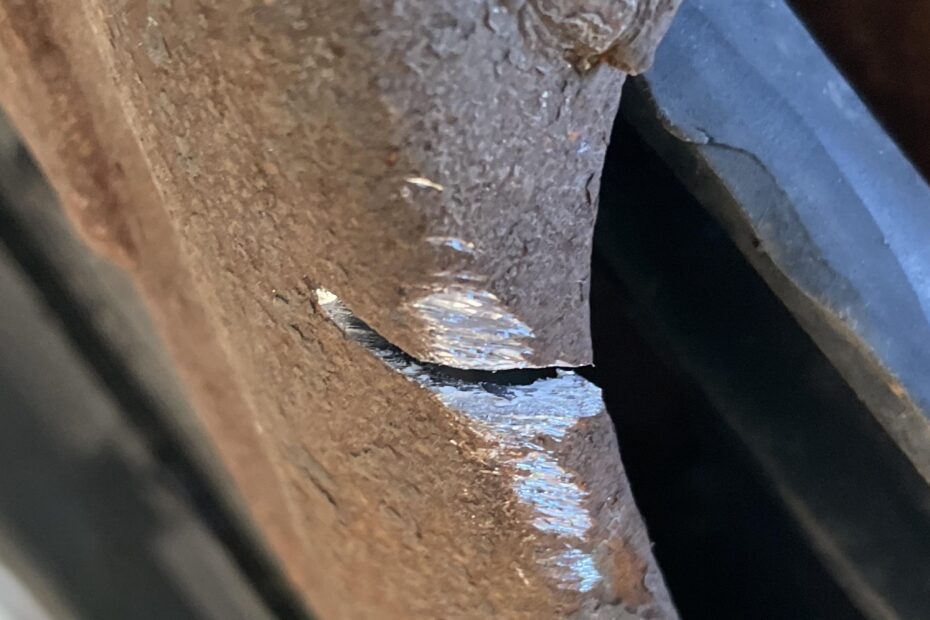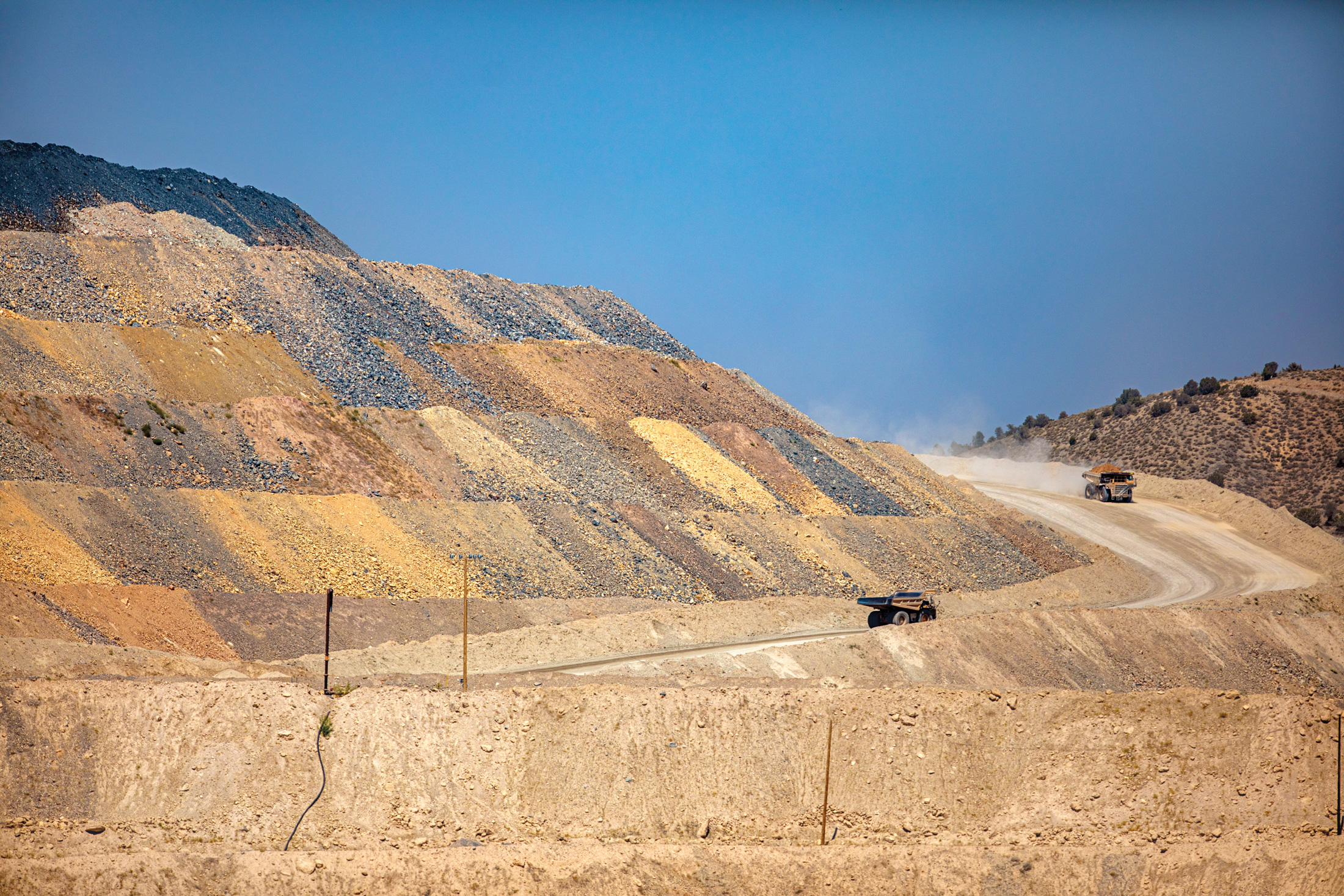Car insurance does not typically cover rust damage as it is considered a normal part of wear and tear on a vehicle. Rusting can cause damage to the internal parts of a car if left unchecked for a long time.
However, if rust is detected and addressed during its early stages, it can be treated and prevent further damage. It is important to regularly inspect and maintain your car to prevent and address any rust issues before they become costly problems.

Credit: www.facebook.com
Understanding Car Insurance Coverage
When it comes to car insurance, it’s crucial to understand the coverage you have and what it entails. Car insurance provides financial protection in the event of accidents, damages, or theft related to your vehicle. To fully comprehend your car insurance policy, it is essential to know the different types of coverage, the limits and deductibles involved, and what your specific policy covers.
What Is Car Insurance?
Car insurance is a contract between you and the insurance company, providing financial protection for your vehicle in case of accidents, damages, or theft. It acts as a safety net, covering the costs that may arise from unforeseen events related to your car. However, it’s important to note that car insurance coverage may vary depending on the policy and the insurance provider.
Types Of Car Insurance Coverage
Car insurance typically includes different types of coverage to protect your vehicle and mitigate potential risk. The most common types of car insurance coverage include:
- Liability coverage: This coverage pays for damages caused to other people’s property or injuries sustained by others in an accident where you are at fault.
- Collision coverage: This coverage pays for damages to your vehicle, regardless of who is at fault, in a collision with another car or object.
- Comprehensive coverage: This coverage protects your vehicle from damages not caused by a collision, such as theft, vandalism, or natural disasters.
- Uninsured/underinsured motorist coverage: This coverage protects you if you’re involved in an accident with a driver who doesn’t have insurance or has insufficient coverage.
- Medical payments coverage: This coverage pays for medical expenses resulting from an accident, regardless of who is at fault.
Limits And Deductibles
Car insurance policies may have limits and deductibles that you should be aware of. Limits refer to the maximum amount your insurance company will pay in the event of a claim. Deductibles are the out-of-pocket expenses you have to pay before your insurance coverage kicks in. It’s important to choose limits and deductibles that are suitable for your needs and budget.
Before selecting a car insurance policy, make sure you understand the coverage limits and deductibles involved. Discussing these details with your insurance provider and asking specific questions will help you make an informed decision and ensure you have adequate coverage for potential risks.
In conclusion, understanding car insurance coverage is essential for every vehicle owner. It enables you to protect your investment and provides financial security in case of accidents or damages. By knowing the different types of coverage, the limits, and deductibles, you can make informed decisions and tailor your car insurance policy to meet your specific needs.

Credit: www.bankrate.com
What Does Car Insurance Cover?
In this section, we will explore what car insurance typically covers under different circumstances. It’s important to understand your coverage to ensure you are adequately protected in case of an accident or damage to your vehicle.
Coverage For Vehicle Damage
When it comes to car insurance, coverage for vehicle damage typically falls under two categories: collision and comprehensive.
Collision coverage applies when your vehicle is involved in a collision with another car or object. This can include accidents with other vehicles, hitting a tree, or colliding with a stationary object. If your car sustains damage due to an accident, collision coverage will help cover the cost of repairs or replacement, depending on the terms of your policy.
Comprehensive coverage protects your vehicle from non-collision events, such as theft, vandalism, fire, or natural disasters. It also covers damage caused by falling objects, like tree branches. In the case of rust damage, comprehensive coverage may come into play if the rust is the result of an incident covered by your policy.
Coverage For Personal Injury
Your car insurance policy may also provide coverage for personal injury resulting from an accident. This coverage typically includes medical expenses, lost wages, and other related costs.
It’s important to review your policy to understand the extent of your personal injury coverage and any limitations or exclusions that may apply.
Additional Coverage Options
In addition to standard coverage for vehicle damage and personal injury, car insurance providers offer additional coverage options that you can add to your policy for extra protection. These options can vary depending on the insurance provider and the policy you choose.
Some common additional coverage options include:
- Rental car reimbursement: This coverage provides reimbursement for the cost of renting a replacement vehicle while your car is being repaired or replaced
- Roadside assistance: This coverage offers assistance for common roadside emergencies such as flat tires, dead batteries, or lockouts
- Gap insurance: Gap insurance covers the difference between the actual cash value of your vehicle and the remaining balance on your car loan or lease in case of a total loss
- Uninsured/underinsured motorist coverage: This coverage protects you if you are involved in an accident with a driver who does not have insurance or has insufficient coverage to pay for your damages
Remember, coverage options and limits can vary by insurance provider and policy, so it’s essential to review your policy documents and consult with your insurance agent to ensure you have the coverage that meets your specific needs.
Exclusions In Car Insurance Policies
Rust damage is considered wear and tear and is not typically covered by car insurance policies. If rust is left unchecked and penetrates the car’s interior, it can cause significant damage to internal parts. It is important to address rust during its early stages to prevent further harm to the vehicle.
When it comes to car insurance, it’s important to understand not only what is covered but also what is not covered. Car insurance policies include various exclusions that determine specific circumstances under which coverage will not be provided. By familiarizing yourself with these exclusions, you can make informed decisions about protecting your vehicle and avoiding any surprises in the event of a claim.
Understanding Exclusions
Insurance companies outline exclusions in their policies to manage risks and prevent fraudulent claims. These exclusions specify situations where coverage will not be extended, making it essential to carefully review your policy documents. By understanding these exclusions, you can identify potential gaps in coverage and consider additional insurance options if necessary.
Common Exclusions In Car Insurance
Car insurance policies commonly exclude certain types of damage or specific circumstances. Here are some of the common exclusions you may find in car insurance policies:
- Normal wear and tear: Car insurance does not cover damage that occurs naturally over time, such as mechanical breakdowns or worn-out parts.
- Intentional damage: Any damage caused intentionally by the policyholder or anyone else is not covered under car insurance.
- Illegal activities: If your car is damaged while being used for illegal activities or by someone without a valid driver’s license, car insurance will not provide coverage.
- Racing or competitions: Damage incurred while participating in racing activities or any organized competition is typically excluded from coverage.
Rust Damage As An Exclusion
One specific exclusion you may come across in car insurance policies is rust damage. Rust occurs gradually over time due to wear and tear, rather than a sudden, unexpected event. Therefore, car insurance usually does not cover frame damage caused by rust. It’s important to note that the extent of rust damage can vary, and some policies may provide limited coverage for specific circumstances, such as corrosion damage caused by an accident or fire.
If your vehicle is prone to rust, it’s advisable to take preventive measures and regularly inspect and treat any signs of rust to minimize the risk of costly repairs. Additionally, considering additional coverage options, such as rust protection plans or extended warranties, may provide added peace of mind and financial protection against rust-related damage.
In conclusion, understanding the exclusions in your car insurance policy is crucial for managing risks and making informed decisions. While rust damage is typically excluded from coverage, being proactive in preventing and addressing rust issues can help prolong the life of your vehicle and potentially save you from expensive repairs down the road.
Does Car Insurance Cover Rust?
Rust can be a common issue for many car owners, and it’s important to understand how car insurance may or may not cover rust damage. In this article, we will discuss the explanation of rust damage, typical coverage for rust damage, and exceptions and special cases.
Explanation Of Rust Damage
Rust damage occurs when the metal of a car begins to corrode due to exposure to moisture, salt, and other environmental factors. It is a gradual process that can start on the surface and eventually penetrate the interiors of the car, causing significant damage to internal parts.
Typical Coverage For Rust Damage
Unfortunately, in most cases, car insurance policies do not cover rust damage. Rust is often considered as wear and tear resulting from normal aging and exposure to elements, rather than a sudden and unexpected event. As a result, car insurance companies typically exclude coverage for rust damage.
Exceptions And Special Cases
While rust damage may not be covered under a standard car insurance policy, there are some exceptions and special cases to consider.
- Comprehensive Coverage: Some comprehensive coverage policies may provide limited coverage for rust damage if it is a result of a covered event, such as theft, fire, or vandalism. However, it’s important to carefully review your policy to understand the specific coverage details.
- New Car Warranty: If your car is still under the manufacturer’s new car warranty, rust protection may be included. Manufacturers typically offer warranties that cover rust perforation, which is when the metal rusts through from the inside out. Be sure to check the details of your warranty to determine the extent of coverage.
- Extended Warranties: If you have purchased an extended warranty for your car, it may include coverage for rust damage. Extended warranties often provide coverage for various mechanical and electrical issues, including rust damage. However, just like with new car warranties, it’s essential to review the terms and conditions of your extended warranty.
In conclusion, it is unlikely that your car insurance will cover rust damage, as it is typically considered as wear and tear. However, there may be exceptions in certain circumstances, such as comprehensive coverage or warranties. It’s always advisable to consult your insurance provider or review your policy in detail to determine the coverage for rust damage.
Options For Dealing With Rust Damage
If you’ve noticed rust on your car, you may be wondering what your options are for dealing with this unsightly and potentially damaging issue. While car insurance typically does not cover rust damage, there are still steps you can take to prevent, repair, and remove rust from your vehicle. Here are some options to consider:
Preventing Rust On Your Car
Prevention is always better than cure when it comes to rust, especially if you live in a region with harsh weather conditions or near the coast where saltwater can accelerate the rusting process. Here are some tips to help prevent rust from forming on your car:
- Wash your car regularly: Regularly washing your car, including the undercarriage, can help remove dirt, salt, and other corrosive substances that can contribute to rust formation.
- Keep your car dry: Moisture is one of the leading causes of rust. Whenever possible, park your car in a covered garage or use a car cover to protect it from rain, snow, and humidity.
- Apply a rust inhibitor: There are several rust inhibitors available on the market that can provide an extra layer of protection against rust. Consider applying a rust inhibitor to vulnerable areas of your car, such as the undercarriage or wheel wells.
- Inspect and touch up paint chips: Scratches and paint chips can expose the metal underneath, making it more susceptible to rust. Regularly inspect your car for any signs of paint damage and touch up the affected areas with matching paint as soon as possible.
Repairing And Removing Rust
If rust has already formed on your car, it’s important to address the issue promptly to prevent further damage. Here are some options for repairing and removing rust:
- Sanding and repainting: For small areas of rust, sanding the affected area and applying a fresh coat of paint can effectively hide the damage and prevent it from spreading.
- Undercoating: Applying an undercoating or rust-proofing treatment to the undercarriage of your car can help protect against further rust formation.
- Professional rust repair: If the rust damage is extensive or affecting critical components of your vehicle, it’s best to seek professional help. An experienced auto body shop can assess the damage and recommend the best course of action, which may include welding, replacing affected parts, or using specialized rust repair techniques.
Costs And Considerations
When dealing with rust damage, it’s important to consider the costs and potential implications. Here are some factors to keep in mind:
- Insurance coverage: As mentioned earlier, car insurance typically does not cover rust damage. Therefore, you may have to bear the cost of repairs or rust removal yourself.
- Extent of damage: The cost of addressing rust damage can vary depending on the extent of the damage. Minor surface rust may be relatively inexpensive to repair, while extensive rust that affects structural components can be more costly.
- Long-term implications: Ignoring rust damage can lead to more serious issues down the line, such as weakened structural integrity or compromised safety. It’s important to address rust problems as soon as they are noticed to prevent further damage.
In conclusion, while car insurance may not cover rust damage, there are still ways to prevent, repair, and remove rust from your vehicle. By regularly maintaining and protecting your car, as well as promptly addressing any rust issues, you can keep your vehicle looking its best and ensure its longevity on the road.
:max_bytes(150000):strip_icc()/car-scratches-and-car-insurance-527084_final-a5859c970e7642efbaf1dd2e94a6d51d.jpg)
Credit: www.thebalancemoney.com
Frequently Asked Questions On Does Car Insurance Cover Rust
Is Rust On A Car Serious?
Rust on a car can be serious if left unchecked for a long time, as it can cause damage to the internal parts of the car. It is important to get rust checked out during its early stages to prevent further damage.
However, car insurance typically does not cover rust damage as it is considered normal wear and tear.
Can Rust Write Off A Car?
No, car insurance does not typically cover rust damage to a vehicle. Rust is considered normal wear and tear.
What Type Of Insurance Covers Damage To Your Own Car?
Comprehensive insurance covers damage to your own car from events other than a collision like theft, fire, or vandalism.
Will Car Insurance Cover A Cracked Frame?
Car insurance usually does not cover damage to a cracked frame caused by rust. This is considered normal wear and tear of the vehicle.
Conclusion
Overall, car insurance does not typically cover rust damage. Rust is considered a normal part of wear and tear on a vehicle. However, it is important to address rust early on to prevent further damage to the internal parts of the car.
If left unchecked, rust can lead to more serious structural issues and decrease the value of the vehicle. It is always recommended to take preventative measures and regularly check for rust to ensure the longevity and roadworthiness of your car.


